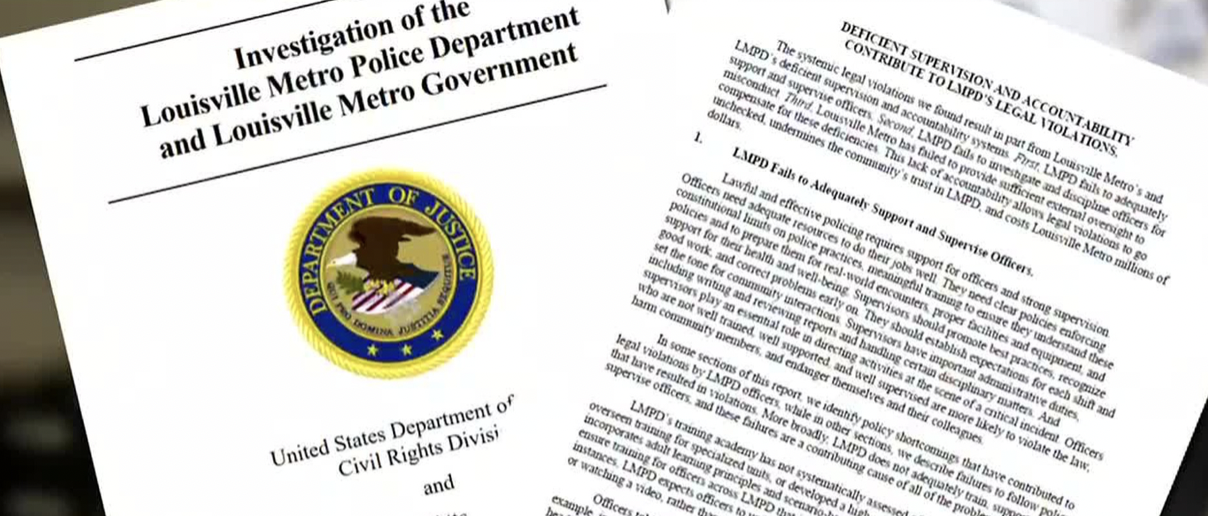Attorney General Merrick Garland announced the Department of Justice has drafted new rules governing consent decrees and the legal firms, former officers, and other experts who monitor them. Let’s hope that Garland’s rules rein in this growing “industry” that sucks away millions from cash-strapped American cities.
The use of consent decrees to “reform” law enforcement agencies was born from the 1991 Rodney King incident. Congress voted to allow the DOJ to use this pressure tactic against police in 1994. And of course the LAPD was one of the first to feel its effects, for the Rampart scandal. In 2001, the City of Los Angeles agreed to federal oversight that covered hundreds of issues and was supposed to last five years. It didn’t end until 2013. That’s a dozen years.
Note: If the feds tell you, your consent decree will last just five years, don’t believe them.
Consent decrees reportedly benefit cities and the law enforcement agencies that serve them. Proponents argue that they deter costly lawsuits, they force cities to fund training programs, and they improve the agency’s performance.
Really?
The City of Los Angeles reportedly paid more than $10 million per year to fund the reforms and pay the court-appointed monitor. How much would a loss in a federal lawsuit have cost? And I don’t think their compliance with the consent decree deterred any subsequent civil rights claims.
Finally, while a consent decree may, through needed reforms and needed training, improve agency performance once it is finally lifted, it buries officers in paperwork while it is in effect. And as evidenced by the LAPD’s five-year consent decree that lasted 12 years, the damned things carry forward seemingly forever.
The most recent ex-Oakland Police Chief Anne Kirkpatrick did not hold back in her criticism of the consent decree’s court-appointed monitor. Last year Kirkpatrick told KPIX. “I will be asking the Department of Justice to come in and open an inquiry into this whole (Oakland PD) reform process. Because something is wrong.” And she really unloaded on the monitor in an interview on KTVU when she said, “It’s a million-dollar (per year) contract. Where is the incentive to find you in compliance?”
Kirkpatrick’s comments may have forced the DOJ to do some soul searching about consent decrees. Regardless, Garland assigned Associate Attorney General Vanita Gupta to look into how consent decrees are being monitored. She was not pleased with what she found and submitted a report that called for multiple reforms.
As Garland announced last month, the DOJ is ordering reforms in the monitor program. It will require that federal oversight be designed to reduce cost to the agency, monitors actually have to take steps to move the agency they are overseeing into compliance, lead monitors will be prohibited from working in multiple jurisdictions at the same time, and monitors and judges will have to review progress in five years and create a plan to bring the agency in compliance as quickly as possible.
If Garland and Gupta really mean business, this could be a major relief for police agencies facing federal oversight. But I’m skeptical.
Also, I have to ask: Why are independent monitors part of this process? Proponents of the monitor say that independent monitors bring local knowledge to the federal oversight. In some cases that is absolute BS. The monitor’s office is sometimes in another time zone.
If the DOJ really wants to reform its consent decree process then why not do away with the independent monitor. Put a government service attorney on the job, and save the taxpayers a truckload of money. Monitors make as much as $2 million per year. Most DOJ attorneys don’t even make one-tenth of that in salary. Assign a couple of them to the federal oversight of each consent decree jurisdiction and bill for their actual hours.
Some would say this gives the government too much control over the agency. And that’s true. But if you think a law enforcement agency with a federal lawsuit hanging over it is not already under federal authority, you’re not paying attention. At least this would reduce the cost of the process.
This article originally appeared here.





